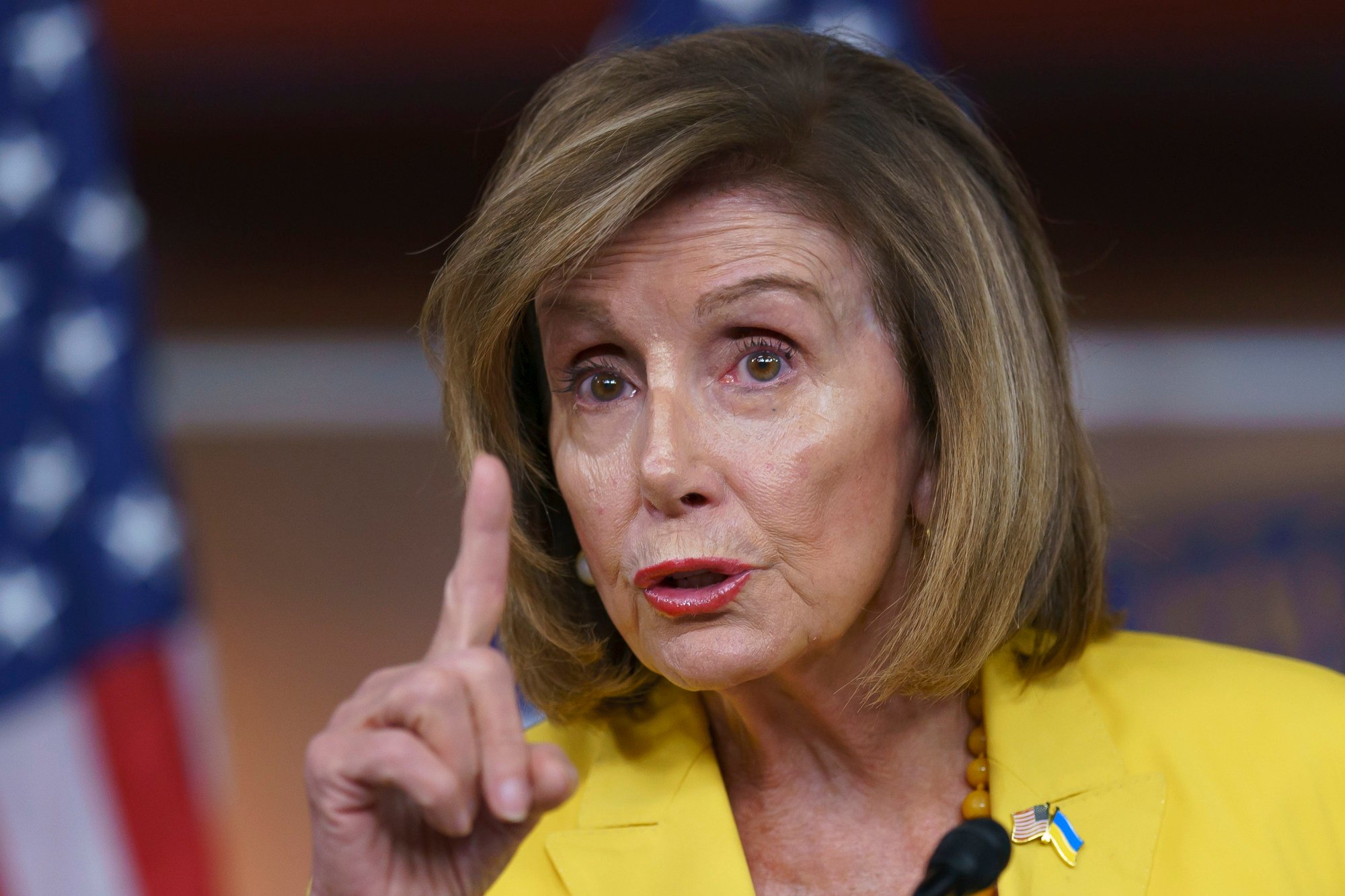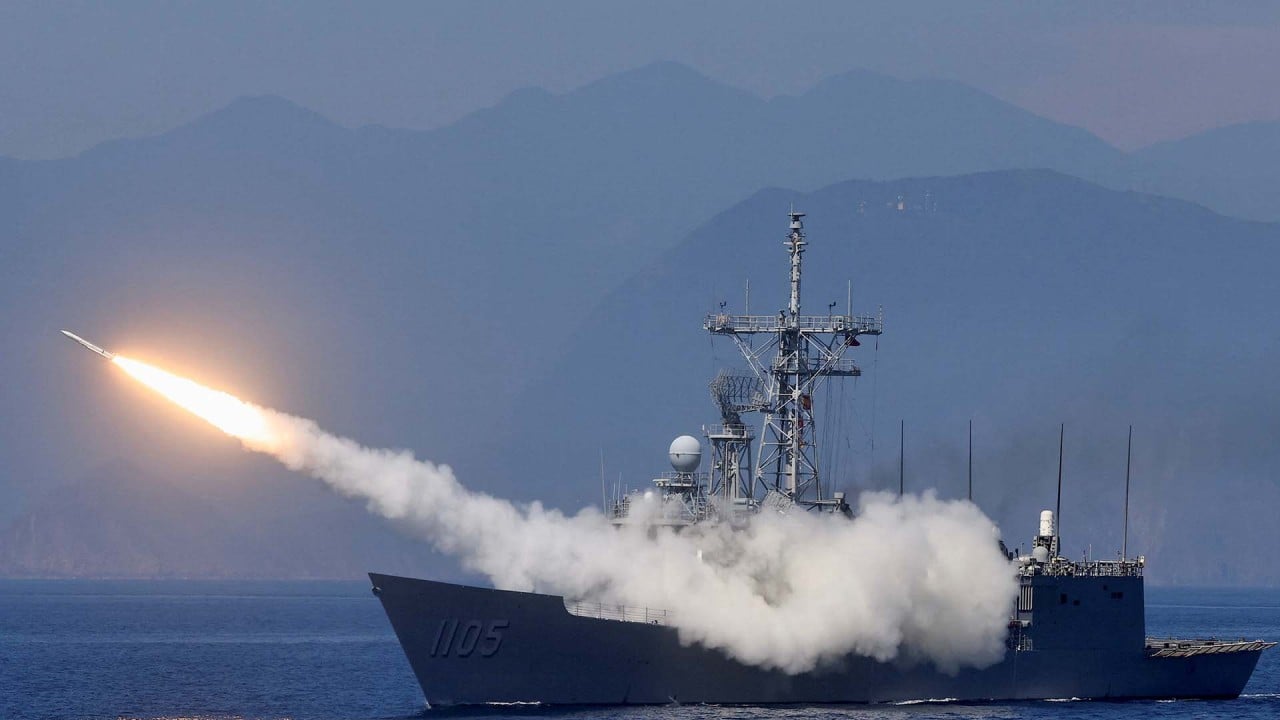
As Xi Jinping warns Joe Biden on Taiwan, history of ‘yao guan’ shows US cannot laugh off China’s intentions
- In a phone call with US President Joe Biden on Thursday, President Xi Jinping warned against playing with fire over Taiwan
- The US ignored China’s warning of ‘yao guan’ in 1950 about intervening in the Korean war, resulting in strained relations until the 1970s
Over the past week, spokespeople from China’s foreign ministry and ministry of national defence have warned that a visit by Pelosi would cross “a red line” and be met with “forceful measures”.
Xi warns Biden on Taiwan, urging ‘clear-eyed’ approach
In response, Biden said the US policy on Taiwan has not changed and Washington strongly opposes unilateral efforts to change the status quo or undermine peace and stability across the Taiwan Strait, according to a statement from the White House.
Chinese leaders often use the phrase of “playing with fire” to warn against any move which they see as encouraging Taiwan’s independence, but in this instance, Xi’s warning is apparently targeted at Pelosi’s possible trip.

News of her visit has put both Beijing and Washington in a very difficult situation as neither wants to back down and be seen as weak at a time of high tensions. This has given rise to worries of a dangerous new crisis brewing over the Taiwan Strait.
It would be hard to overstate the ramifications if Pelosi ignored the warnings and went ahead with her trip to Taiwan, particularly as anti-China hawks in Washington including former secretary of state Mike Pompeo goaded her on.
It would be a grave mistake if they dismiss China’s warnings merely as “empty threats”.
Risk of US-China conflict over Taiwan could leave Japan badly exposed
To a certain extent, there is some sense of déjà vu about the latest tensions over Taiwan. It evokes memories of a bloody chapter in the history of the two countries more than 70 years ago when the US laughed off China’s warnings, which led to the Korean war.
Zhou used the plain Chinese words yao guan to convey Beijing’s intention. The two words can have many meanings in Chinese and could be translated as “to take care of” or “take charge of”.
Before the meeting, Zhou even discussed with the interpreter on finding an accurate English term for yao guan.
But Zhou’s painstaking efforts went to waste. General MacArthur and US politicians in Washington largely dismissed Zhou’s public and private warnings as empty threats. Dean Acheson, then secretary of state, even said Zhou was not an authoritative spokesman while President Harry Truman believed that Zhou’s warning was no more than political blackmail and brushed aside Panikkar’s message merely as “a relay of communist propaganda”.
Taiwan ‘will have to bear wrath of Beijing’ if Pelosi visit goes ahead
What ensued was a hot war which cost millions of lives, to be followed by a cold war between the countries which lasted until the early 1970s.
Since then, the bilateral relationship has come a long way. Despite rising tensions, Beijing and Washington have tried to maintain direct communications to manage the volatile ties from the highest levels of government and the military downwards.
But the risk of misunderstanding and miscalculation is still great. It is certainly true that the tone and language of China’s statements over Pelosi’s possible visit to Taiwan are not much different from the rhetoric directed against Newt Gingrich who went to Taiwan in 1997 when he was House speaker.
Back then, China had a different leader and the country was comparatively much weaker.
Today, Xi has become the most powerful leader since Mao Zedong. He is in the process of seeking a norm-busting third term as party chief some time in the fall. At this crucial moment, he cannot afford to be seen as weak. More importantly, China’s military has become much more powerful.
Intriguingly, Biden publicly said that the US military thought Pelosi’s possible trip to Taiwan “was not a good idea right now”. The Pentagon – along with some White House officials – is reportedly lobbying Pelosi’s office about postponing the trip. After all, the US military perhaps has the best insights into and intelligence about the capabilities of China’s armed forces. When push comes to shove, the US military would have to bear the brunt.
Of course, the US side will also find it difficult to back down now. If Pelosi does not go, the US will be seen as caving to Chinese pressure and hand Beijing a victory, which would weaken its future moves in the eyes of the Chinese.
Many US politicians including former Defence Secretary Mark Esper believe China is overreacting and are sceptical if the two countries would really go to war over a high-level congressional trip to Taiwan.
Do they really want to find out?
Judging by the tone and language of China’s statements, they are much stronger than the words yao guan uttered by Zhou Enlai 72 years ago.
Wang Xiangwei is a former editor-in-chief of the South China Morning Post. He is now based in Beijing as editorial adviser to the paper.


